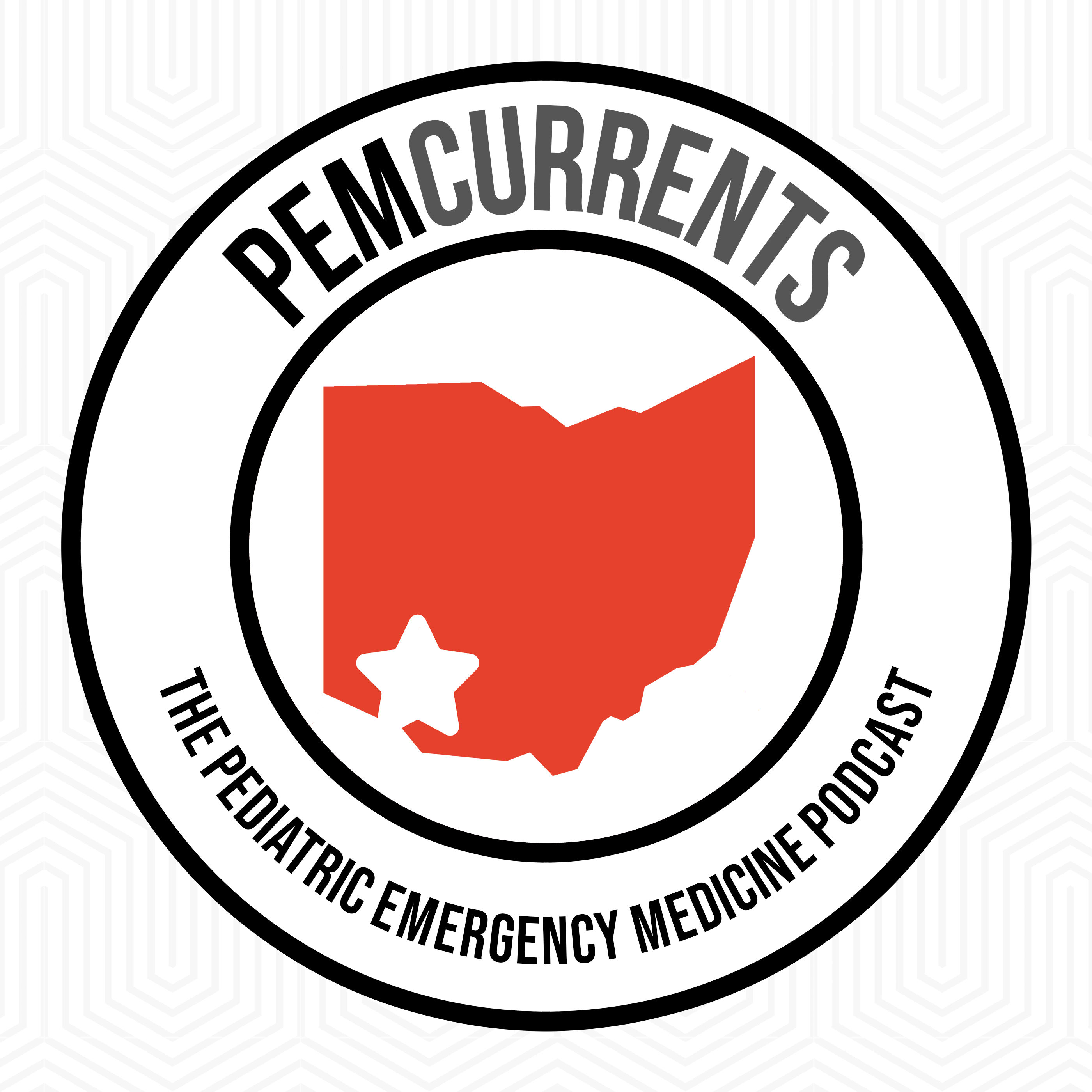Laceration repair is one of the quintessential procedures that children undergo in Emergency Departments. Minimizing pain and anxiety for children is a much better idea than just holding them down and getting it done. This episode will teach you all about local anesthetics, when to use anxiolytics and procedural sedations s well as the considerable value of nonpharmacologic intervention – including Child Life Specialists.
This episode is a co-production of the Emergency Medical Services for Children Innovation and Improvement Center whose mission is to minimize morbidity and mortality of acutely ill and injured children across the emergency continuum. We have developed a series of pain focused episodes.
Other Episodes in the Series
The Pediatric EMS Podcast: Ouch-less Pediatrics
EM Pulse: Please Don’t Hurt Me!
Listen

Penetrating Neck Injuries – PEM Currents: The Pediatric Emergency Medicine Podcast
Subscribe
Disclaimer
The Emergency Medical Services for Children Innovation and Improvement Center is supported by the Health Resources and Services Administration (HRSA) of the U.S. Department of Health and Human Services (HHS) as part of an award (U07MC37471) totaling $3M with 0 percent financed with nongovernmental sources. The contents are those of the author(s) and do not necessarily represent the official views of, nor an endorsement, by HRSA, HHS, or the U.S. Government. For more information, please visit HRSA.gov
To learn more about the Emergency Medical Services for Children Innovation and Improvement Center visit https://emscimprovement.center
Email km@emscimprovement.center
Follow on Twitter @EMSCImprovement
References
Frank et al. How acidic is the lidocaine we are injecting, and how much bicarbonate should we add? Can J Plast Surg. 2012 Summer; 20(2): 71–73. PMCID: PMC3383550
Kennedy RM, Luhmann JD The “ouchless emergency department”. Getting closer: advances in decreasing distress during painful procedures in the emergency department. Pediatr Clin North Am. 1999;46(6):1215.
Momsen OH et al. Neutralization of lidocaine-adrenaline. A simple method for less painful application of local anesthesia. Ugeskr Laeger. 2000 Aug 14;162(33):4391-4.
Resch K, Schilling C, Borchert BD, Klatzko M, Uden D. Topical anesthesia for pediatric lacerations: a randomized trial of lidocaine-epinephrine-tetracaine solution versus gel. Ann Emerg Med. 1998;32(6):693.
Sinha M, Christopher NC, Fenn R, Reeves L. Evaluation of nonpharmacologic methods of pain and anxiety management for laceration repair in the pediatric emergency department. Pediatrics. 2006;117(4):1162.















